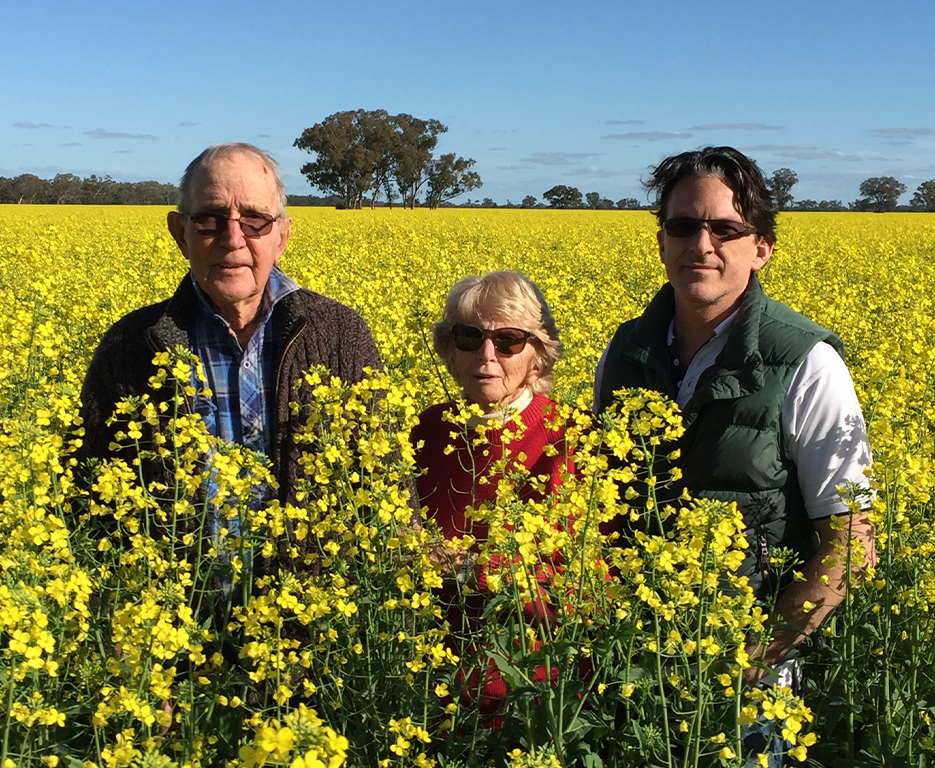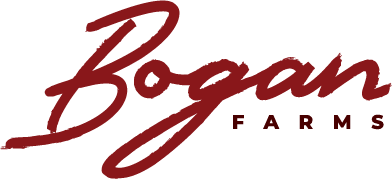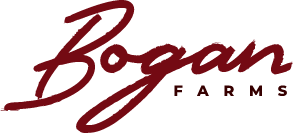A family history that’s linked to the land we farm.
Bill and Jill Bootle purchased our home farm, Claremont, in 1961 continuing the family’s 100-year connection to Nyngan. Today, Jill Bootle, Richard Bootle and Ian Perkins farm over 12,000 hectares of lush red floodplains, nestled between the banks of the Bogan River and the gentle rises of the Cobar Peneplain.

The Bogan Valley near Nyngan in NSW was a traditional meeting place of the Wongaibon, the Wailwan and the Wiradjuri people.
We acknowledge the Traditional Custodians of the land on which our family is lucky enough to live today. We pay our respects to their Elders, past, present and emerging.

Our inheritance is more than just land. It’s innovation!
After acquiring Claremont in 1961, Bill and Jill turned what had been purely grazing land into the area’s most successful broad acre farming operation.
Not surprising really – Bill Bootle came from a long line of Scottish croppers and cleaned up the local crop competitions most years, even winning over areas with much higher in-crop rain. Bill and Jill supplemented their winter cropping income with fat lamb and cattle production.
In the late 1960s the Scrubby Hereford Stud was established and has been providing market-topping prime Hereford steers to Dubbo markets for over 50 years (thanks in no small part to the pioneering efforts of Jill’s sister, Joan Russ, who following their father’s lead on pioneering Merino sheep without horns, soon bred out the horn genes in the Scrubby herd). Scrubby has consistently sourced leading bulls from across Australia including Allendale Official 2 (AEDV86), Tocolah Jack Flash TPCF82, Ironbark Glen Cannonball (IBGC21). Recent working sires include Wirruna Matty (WNAM288) and Wirruna Plato (WNAP214).
Building on the pioneering efforts of Bill, Jill and Joan we have continued to innovate our farming operations, being early adopters of Zero-tillage broadacre farming and incorporating Canola, Monola, Chickpeas and other pulse crops in our cropping rotation. In the last 20 years we increased our cropping area and in 2021 we planted over 8000 hectares nearly half of which was Canola.
Adapting to global warming.
With a global reluctance to reduce carbon emissions fast enough to prevent significant global warming, a drier, hotter Winter and Spring for Bogan Farms looks likely.
This means we need to change what we do given a regular winter crop programme is no longer a viable farming option in the Bogan Valley.
Armed with recent memories of the 2017 to 2019 drought and referencing the best science available, we are on an innovation journey to convert thousands of hectares of crops to native pasture, refocusing on grazing to produce prime beef. Adapting our farming operations to cattle production reduces global warming risk, which is good for the world’s food bowl … and not such a bad move for the planet: Biogenic methane (i.e. non-fossil fuel methane) is recycled back through grass production and consumption by cattle and has 12 year (+ or – 3 years) atmospheric life time. What this means is that the net contribution only increases if cattle numbers increase. Cattle numbers in Australia are lower than they were in 1972 and any methane contributions are already capped in a static “flow gas” system. [C. K. Varshney & Arun K. Attri (1999) Global warming potential of biogenic methane, Tellus B: Chemical and Physical Meteorology, 51:3, 612-615]

Get in touch.
Want to stay up to date with the latest news about our farms or Bogan Red? Or do you want to work with us on our busy farming journey? We’d love to hear from you.


